PrAACtically February: Resources for A Year of Core Vocabulary Words
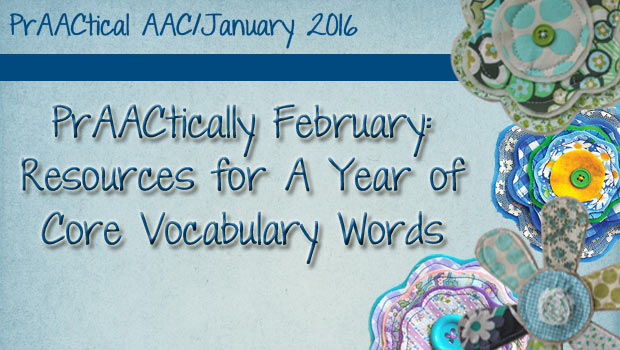
Are you looking for some ways to help your AAC learners become more fluent in using core vocabulary? One approach to boosting practice opportunities is to select a dozen or so core words to focus on each month. Throughout the month, we can then pay special attention to that small group of words by highlighting them with focused language stimulation, aided language input, and specific activities designed to teach or practice those words, In previous years, we shared lists of some core words to help you do just that. You can learn more about that in the posts linked below.
It’s been a busy January, and now it’s time to prepare the next set of core vocabulary words. Our words for February are listed below.
Set 1: again, eat, get, go, happy, here, look, I/me, on, play, put, this
Set 2: afraid, father, girl, how, hurt, many, myself, new, school, sing, stuff, thirsty, trouble, watch, wet, will
Looking for resources to make it easier to model and highlight these words? Here are some contributed by friends of PrAACtical AAC. Much appreciation to Christy Bayley, Bill and Lori Binko, Heidi LoStracco, Alison Wade, Russell Cross, Gail Van Tatenhove, Eric Sailers, Rachael Langley, Mimi Palmere, and others.
- Templates for you to plug in your own symbols: Set 1 Words, Set 2 Words
- Minspeak/Unity version: Set 1 Words
- PCS versions: Set 1 Words, Set 2 Words
- Lesson Pix: Set 1 Words
- Speak for Yourself: Set 1 Words
- Symbol Stix: Set 1 Words
There are lots of ways to integrate our February core words into our intervention and daily interactions with AAC learners. Like all core vocabulary, these words are flexible enough to use in the sentences we say all throughout the day. Taking the time to slow down and use AAC as we say speak is one way to provide the learner with a supportive language environment. This pivotal strategyhttps://praacticalaac.org/praactical/pivotal-skills-for-aac-intervention-aided-language-input/, aided language foundation, is something we aim to use all day long. If you are also striving for that practice, here are some sentences to get you thinking about how you can incorporate the February words as you move through your daily routine.
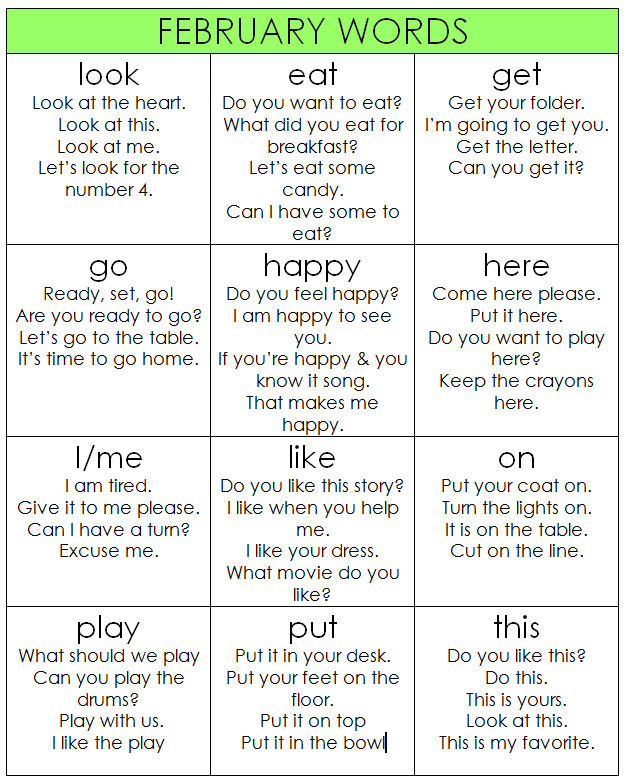
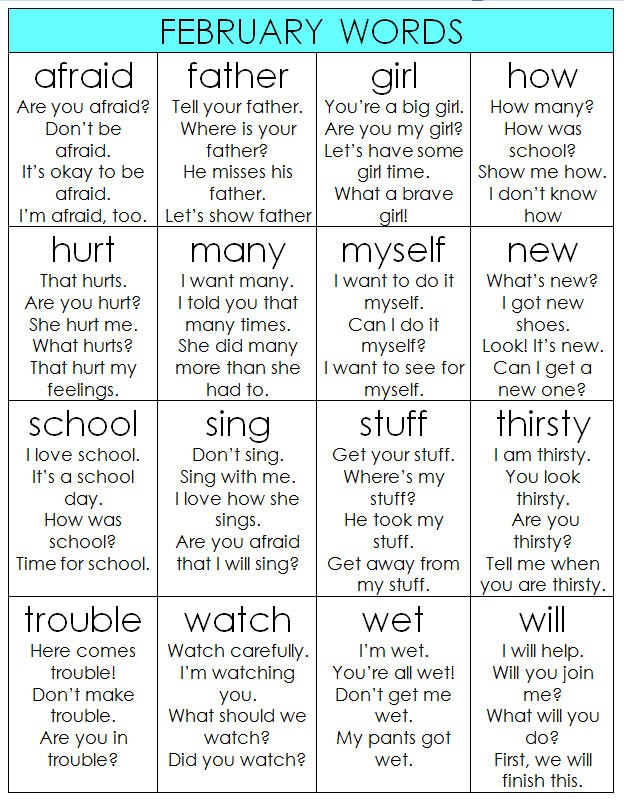
As we all know, story reading is a great way to highlight core words, build fluency with AAC, and support literacy development. Here are a few books that can be used to provide some extra exposure to our February core words.
- Alexander and the Terrible, Horrible, No Good, Very Bad Day by Judith Viorst: again, eat, get, go, I/me, on, afraid, how, hurt, school, trouble
- Ask Me by Bernard Waber: again, eat, happy, here, I/me, on, play, father, girl, how
- Happy by Emma Dodd: happy, look, on, play, put, many, sing, watch
- Owl Moon by Jane Yolen: get, go, happy, here, look, I/me, father, girl, how, watch, wet
- Pout-Pout Fish in the Big, Big Dark by Deborah Diesen: again, get, go, afraid, trouble, wet
- Put Me In the Zoo by Robert Lopshire: go, here, I/me, look, on, new, trouble, will
A big highlight of our Year of Core Words posts are the amazing calendars that Rachael Langley creates. Take a look at the fun things she has planned for February (download calendar here).
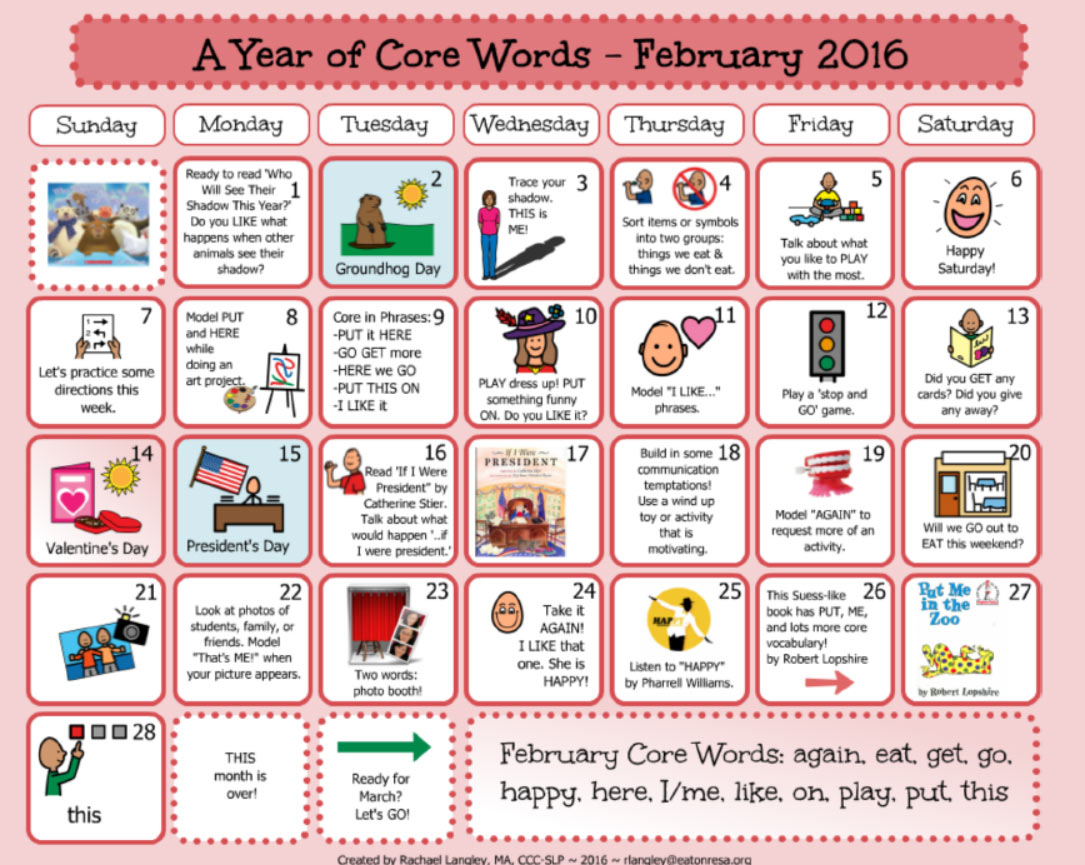
Thanks to all of our prAACtical friends who donated their resources to share in this and other Year of Core Vocabulary posts. If you’ve made some materials that correspond with this approach, and would be willing to share them in this space, please reach out. Together, we can do this!
Filed under: PrAACtical Thinking
Tagged With: A Year of Core Words, core vocabulary, download
This post was written by Carole Zangari

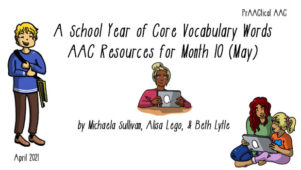
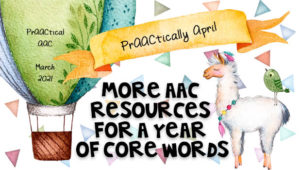
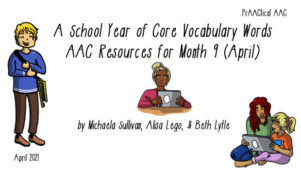
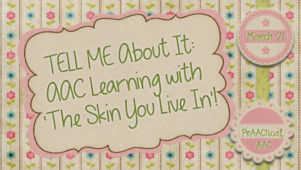
5 Comments
I have started using a 50 word, color-coded, communication board (low tech) with to my 4.5 year old scholar with CAS…how do I incorporate monthly words? Do I cross-check the words each month with what is already on the board?
Thank you! Reading this post is like opening a treasure chest.
Haha! Thanks for taking the time to comment, Anne! Hope you find some of the resources to be helpful. 🙂
Thank you! great ideas… helpful when we dont have to recreate the wheel!
Does anyone know of any books that highlight using want, giving greetings, or things like that?